RV Garden Ideas: Creative Tips for Charming Mobile Gardens
If you love both gardening and traveling, creating a garden in your RV might be the perfect solution for you. Finding space for plants in such a compact living area can be challenging, but it’s definitely possible with the right tips and tricks.
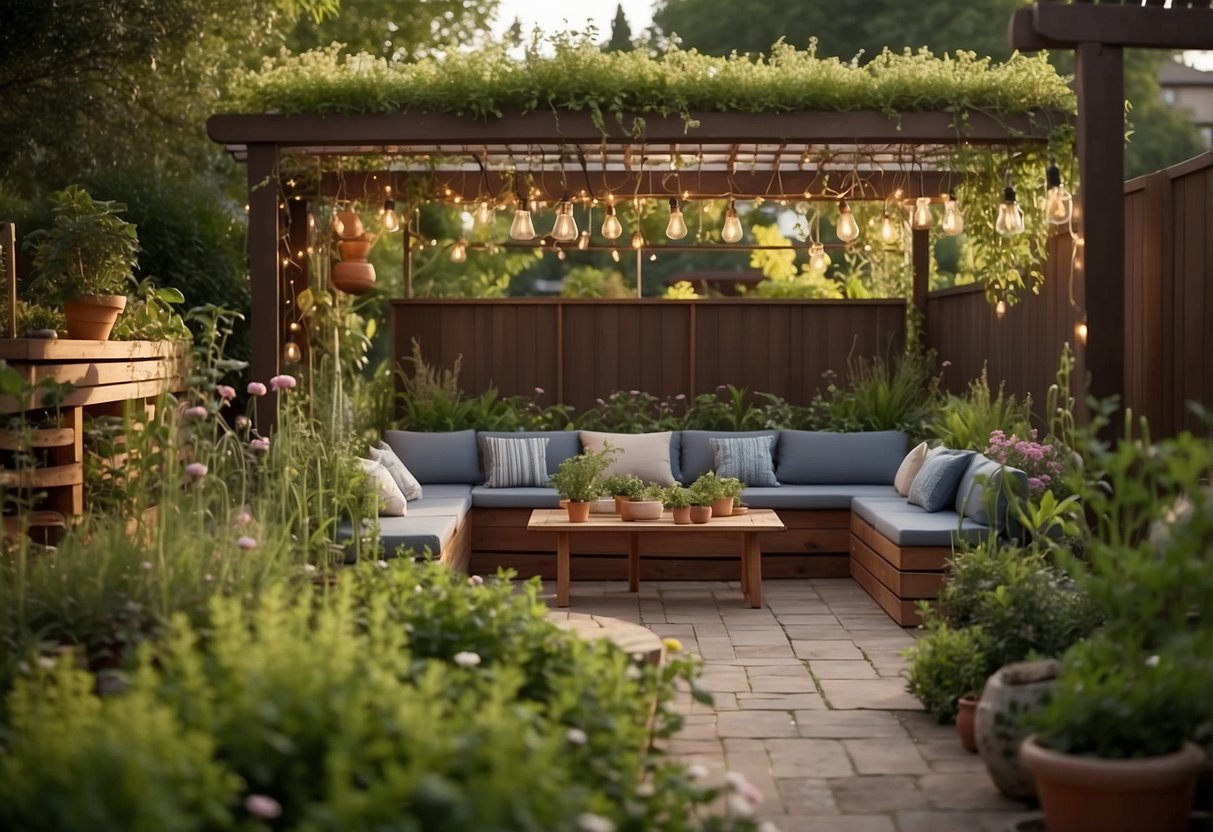
How can you enjoy the joys of gardening while living on the road? From hanging plants to soil-free gardening methods, you have many options to explore. Embracing these ideas will not only add greenery to your RV but also allow you to grow fresh herbs and plants during your travels.
1) Compact Herb Planters

Compact herb planters are perfect for RV living. They fit well in small spaces like window sills or countertops.
Herbs such as basil, oregano, and parsley thrive in small planters. You can place them in your RV’s shower or truck bed during travel.
Consider using a windmill planter or small pots. These options are easy to transport and manage.
2) Portable Vertical Garden

A portable vertical garden is a great way to grow plants in an RV. These gardens maximize space by using vertical surfaces.
You can build one using materials like wood or metal, or buy a ready-made one like the Vertefarm Vertical Hydroponic Indoor Garden.
With a portable vertical garden, you can grow vegetables, herbs, and flowers even while on the move.
3) Hanging Flower Baskets
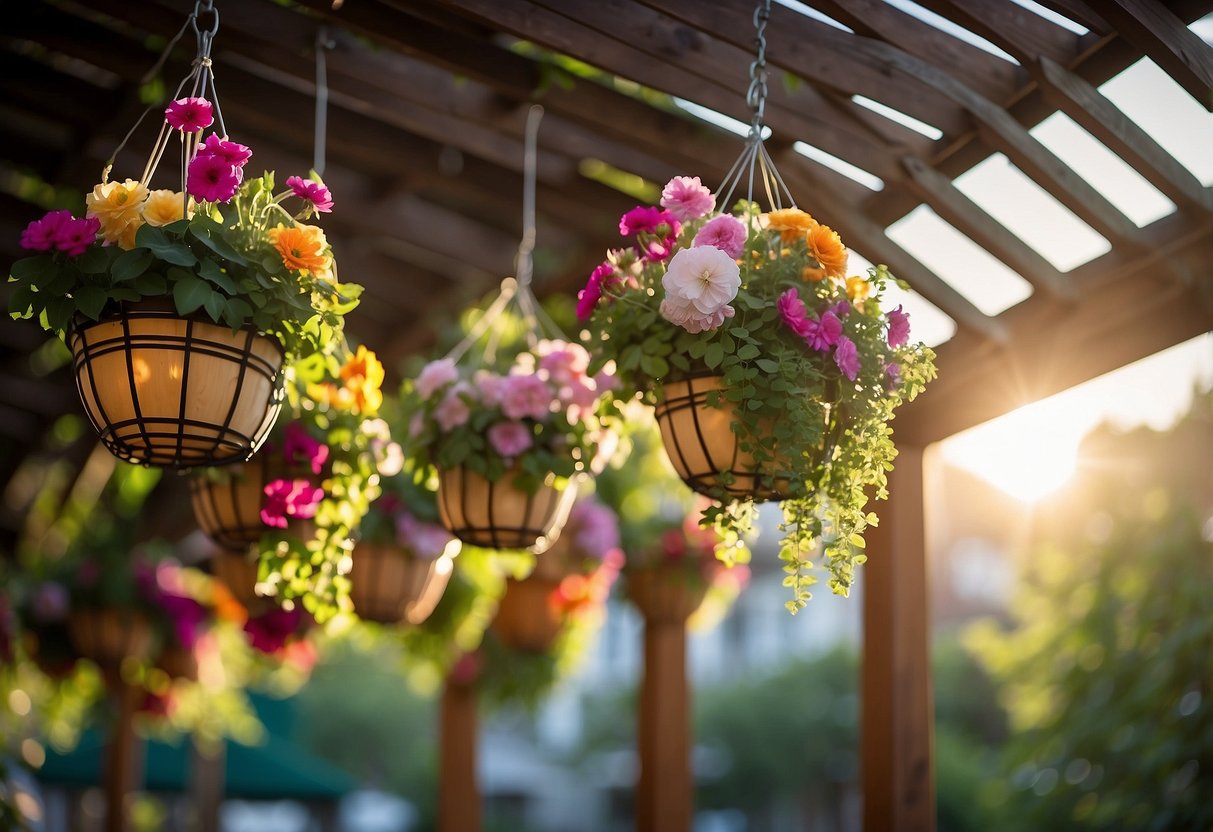
Hanging flower baskets add a lovely touch to your RV. They don’t take up much space but still bring plenty of color and beauty. You can use plants like begonias, petunias, or lobelias.
Choose flowers that match your climate. For sunny spots, calibrachoas and petunias thrive. For shady areas, ferns and hostas work well.
Remember to water them often and check for any dead leaves or flowers. Hanging baskets are an easy way to make your RV feel more like home.
4) Miniature Fruit Trees
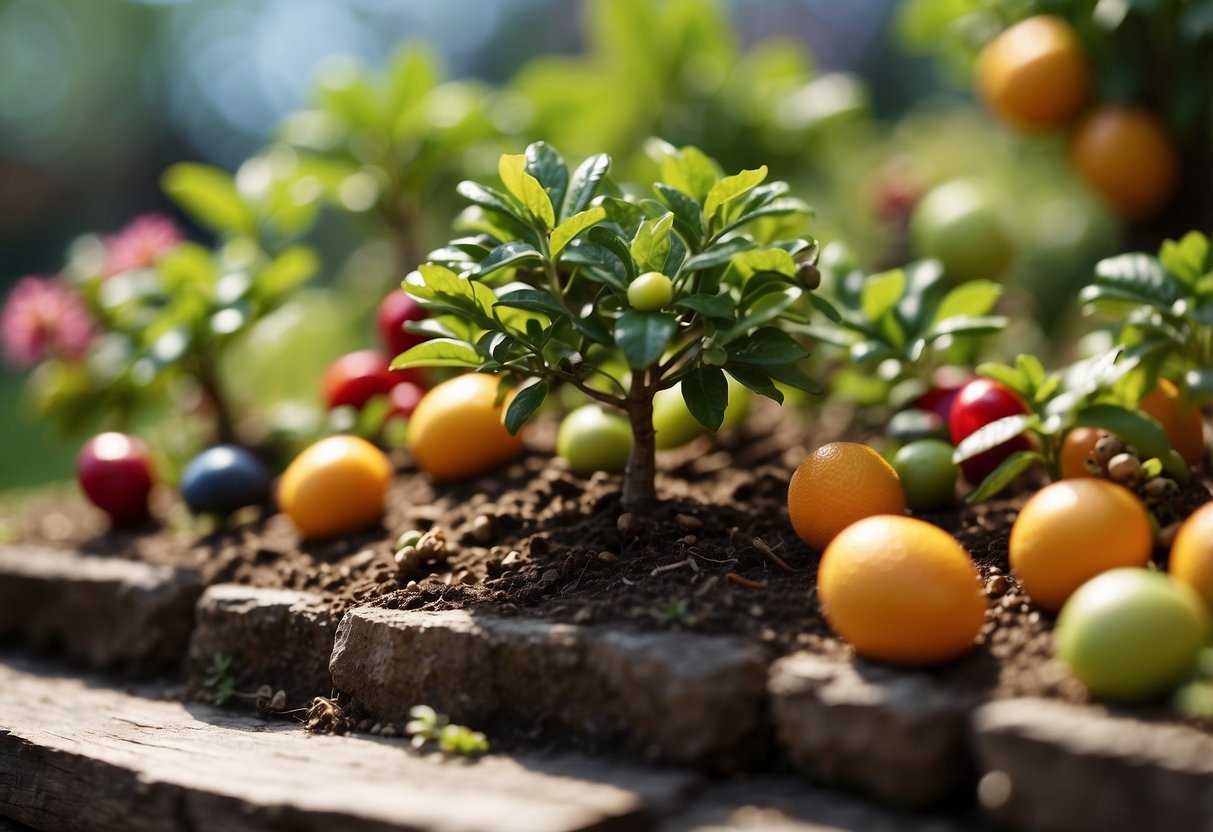
If you’re looking to add some fresh fruit to your RV garden, miniature fruit trees are a great option. They don’t take up much space but still produce delicious fruit.
Consider varieties like dwarf apple trees and dwarf lemons. They can grow well in pots on your patio.
Cherries are another good choice. A semi-dwarf ‘Stella’ cherry tree can thrive in small spaces and provide sweet, juicy cherries. They do well in USDA Zones 5 to 9, and you can easily manage their size.
5) Folding Garden Table

A folding garden table is a great addition to your RV garden. It saves space and is easy to store when not in use. You can use it for planting, dining, or just enjoying your morning coffee.
Consider the Coleman Pack-Away Deluxe Portable Kitchen for larger groups, or the lighter PORTAL Foldable Table for smaller spaces. Both provide flexibility and convenience in your RV garden setup.
6) Solar-Powered Garden Lights
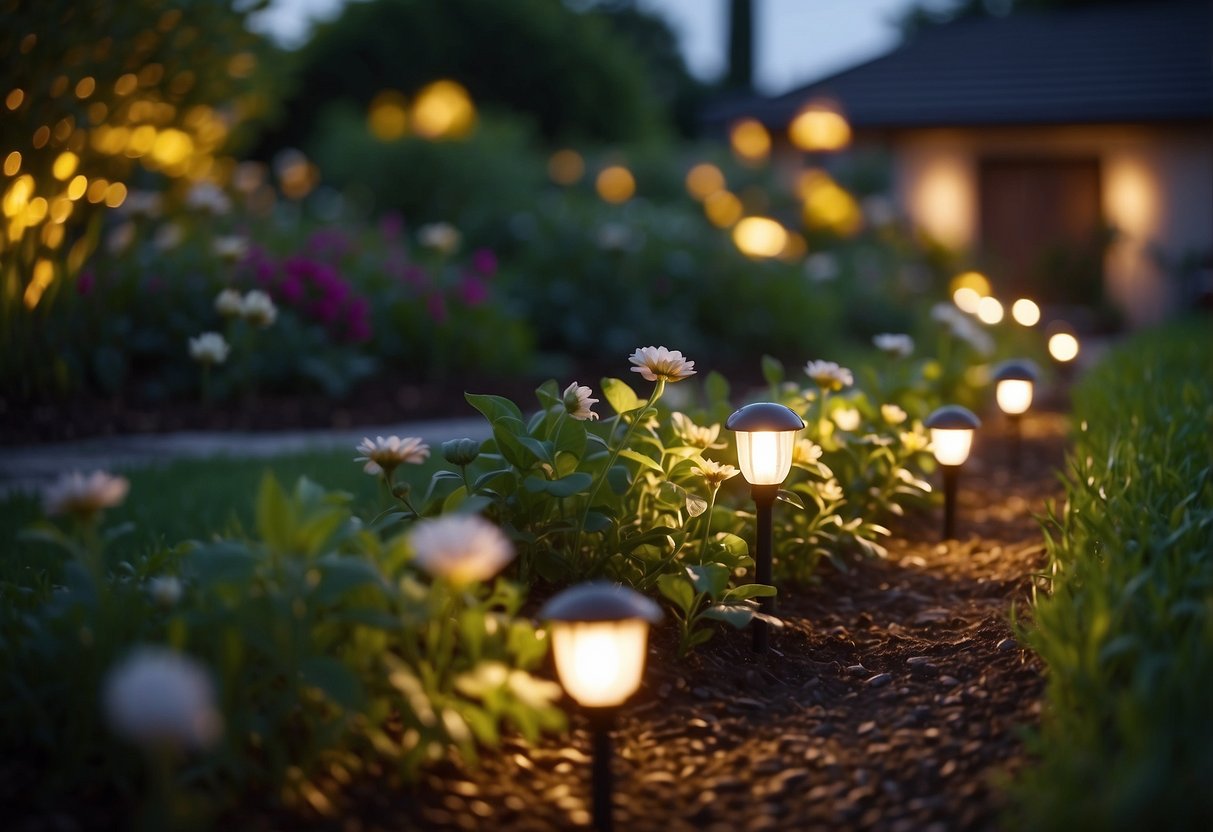
Solar-powered garden lights are perfect for your RV garden. These lights are eco-friendly and very easy to install. There’s no need for wires or outlets.
You can place solar garden flower lights in your flower beds for a magical touch. Hanging solar lanterns also create a warm atmosphere.
To guide your way at night, use solar pathway lights. They enhance security and look great. Adding solar chandeliers will bring elegance to your space.
7) Magnetic Herb Jars

Magnetic herb jars are a clever and space-saving solution for your RV garden. You can stick these jars to any magnetic surface, like your refrigerator or a metal backsplash.
These jars keep your herbs within easy reach and add a touch of greenery to your tiny kitchen. Using magnetized containers helps you avoid clutter and makes the most of your limited space.
To get started, try making your own magnetic herb garden. You’ll need small containers, magnets, and some potting soil. Attach the magnets to your containers, fill them with soil, and plant your favorite herbs.
8) Outdoor Garden Rug

An outdoor garden rug can instantly make your RV campsite feel cozy.
Choose a rug made from durable materials like polypropylene, which resists stains and fading and comes in many patterns.
Placing a soft, weather-resistant rug under your outdoor furniture can give your space a homey touch and help keep dirt from being tracked inside. Find more options for RV outdoor rugs.
9) Succulent Arrangement Kit
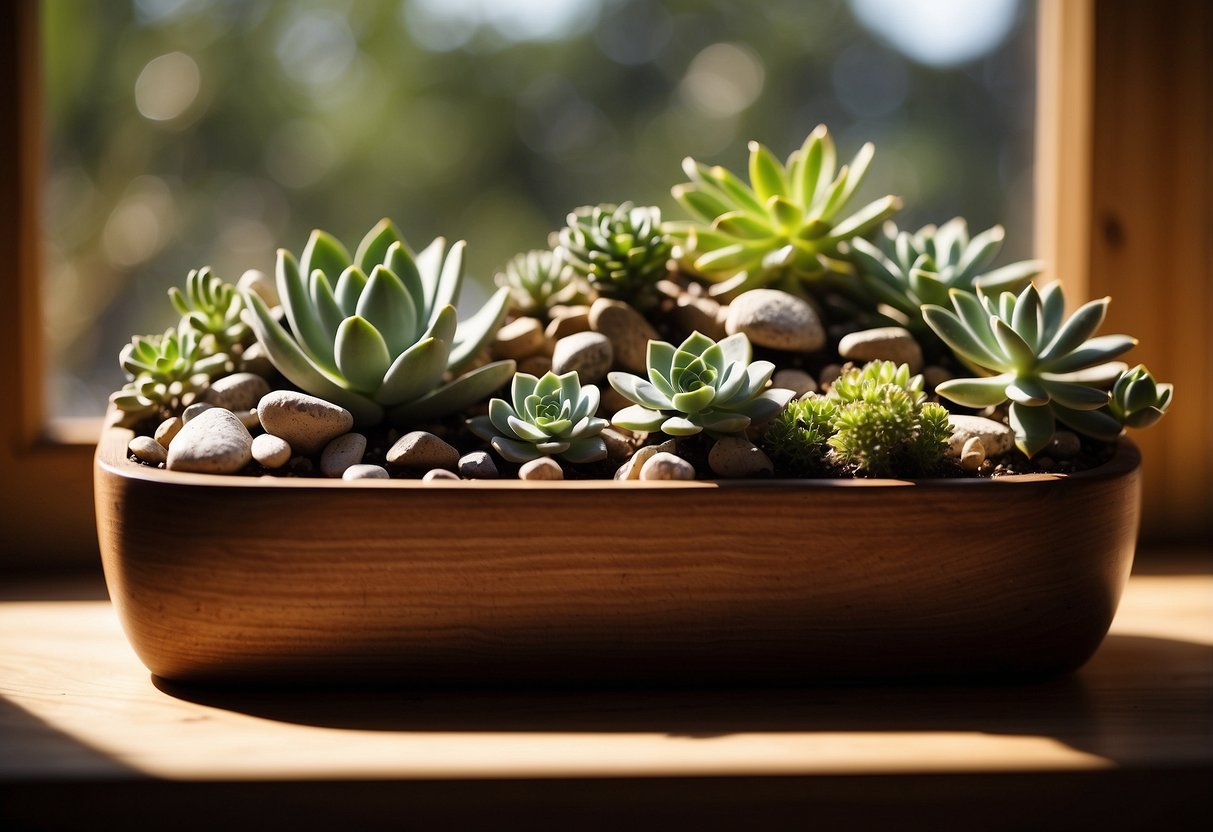
A succulent arrangement kit is perfect for your RV garden. These kits usually include a variety of small succulents, soil, and a container, making it easy to create a beautiful display.
You can find kits with unique containers, like driftwood or ceramic pots. They are designed to ensure good drainage, essential for succulents.
This compact and decorative option is great for limited RV space and requires minimal care. For more ideas, visit these succulent container projects.
10) Rolling Plant Stand
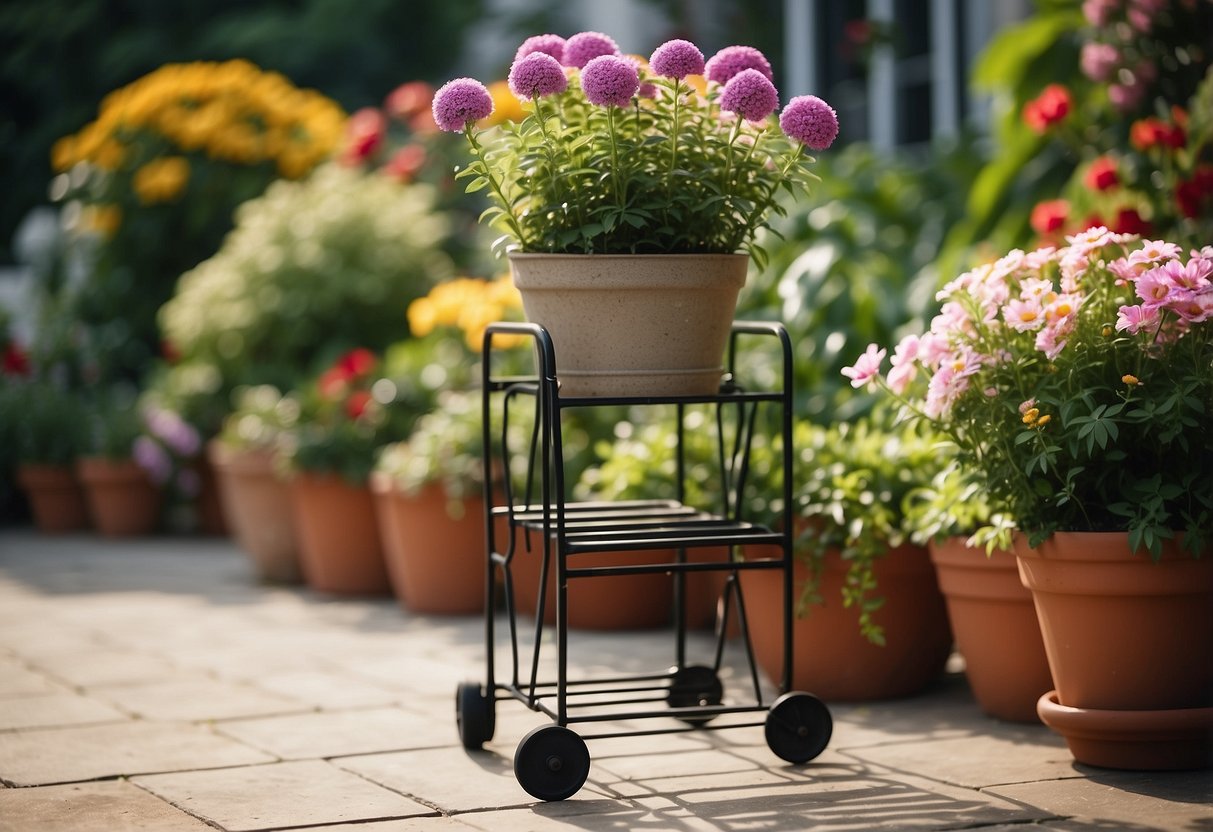
A rolling plant stand is a fantastic addition to your RV garden. It allows you to easily move plants around to catch the best sunlight.
Creating one can be as simple as adding wheels to a sturdy tray. This makes it easier to clean around your plants and rearrange them as needed.
For more ideas on DIY plant stands, check out this guide on mobile plant stand ideas.
Designing Your RV Garden

When designing your RV garden, it’s important to choose suitable plants, make use of small spaces, and consider vertical gardening. These strategies will help you create a thriving garden while living on the road.
Choosing the Right Plants
Selecting the right plants for your RV garden is crucial. Opt for plants that are small, hardy, and low-maintenance. Herbs like basil, rosemary, and thyme are excellent choices because they require minimal care and space.
Vegetables like cherry tomatoes and lettuce can also thrive in this environment. Consider compact bush varieties for tomatoes, as they withstand travel vibrations well.
Succulents are another great option, as they are drought-tolerant and resilient. Be mindful of each plant’s sunlight and watering needs. Ensure you have enough light for sun-loving plants and possibly invest in grow lights for those needing more light.
Maximizing Small Spaces
Space is always limited in an RV, so you need to be creative. Use portable containers that you can easily move inside or outside depending on weather conditions.
An over-the-door shoe holder is a fantastic idea for growing small plants like herbs. You can hang it over the RV door and move it inside while traveling.
Utilize areas like the shower, sink, or countertops to store plants when on the road. Consider foldable or collapsible containers that can be stowed when not in use. Use plant stands and storage shelves to keep plants organized and accessible without taking up too much valuable space.
Incorporating Vertical Gardens
Vertical gardening is an effective way to maximize space. Use wall-mounted planters or hanging baskets to grow your plants. Trellises can help vine plants like peas or beans grow vertically, saving precious floor space.
Attach lightweight planters to the outside of your RV when parked, and bring them inside during travel. Garden towers or stackable planters are excellent for growing multiple plants in a small footprint.
Explore DIY options, such as using hanging shoe organizers or homemade shelving units. Ensure that all fixtures are secure to prevent damage during travel. Vertical gardens not only save space but add a unique aesthetic touch to your RV.
Maintenance Tips
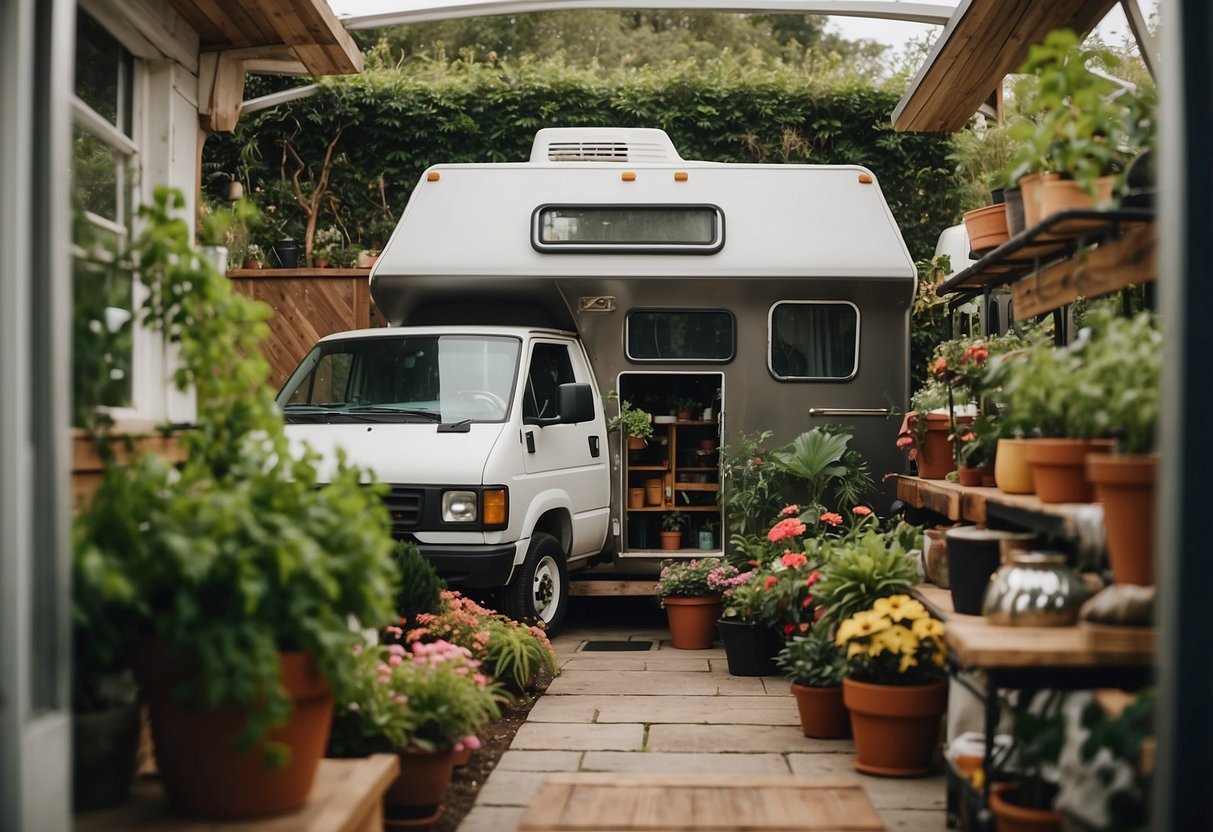
Maintaining an RV garden involves managing water efficiently, protecting plants from pests, and adjusting care routines for different seasons. Here’s how you can keep your garden thriving.
Watering Strategies
Watering your RV garden correctly ensures that your plants stay healthy. Since space is limited, using deep-watering techniques can help. This method delivers water directly to the roots. You can use a drip irrigation system or self-watering containers. These will keep your plants hydrated without overwatering.
Another tip is to water in the early morning. This prevents water from evaporating quickly and allows the soil to absorb the moisture. If you’re traveling, consider a portable rain barrel. This lets you collect rainwater and reduces the need for frequent refills.
Dealing with Pests
Pests can quickly become a problem in an RV garden. Using natural repellents like neem oil or insecticidal soap can help manage them. These options are safe for plants and avoid harsh chemicals. Hanging yellow sticky traps around your plants can catch many flying insects and keep them from damaging your garden.
Beneficial insects like ladybugs and lacewings can also help control pests. Encourage these helpful bugs by planting flowers that attract them. Regularly inspect your plants for signs of pests, such as holes in leaves or sticky residue, and address issues promptly.
Seasonal Care
Adapting your care routine to the changing seasons keeps your plants healthy year-round. In warmer months, ensure your plants get enough shade to prevent scorching. You can use shade cloths or move plants to less sunny spots in your RV when it gets too hot.
During cooler months, protect your plants from chilling temperatures. You can bring potted plants inside the RV or use frost cloths to keep them warm. Monitoring the weather and being prepared for sudden changes can make a big difference.
Adjust watering schedules based on the season. Plants may need more frequent watering in summer and less during winter. Being attentive to these seasonal needs keeps your RV garden flourishing all year.







